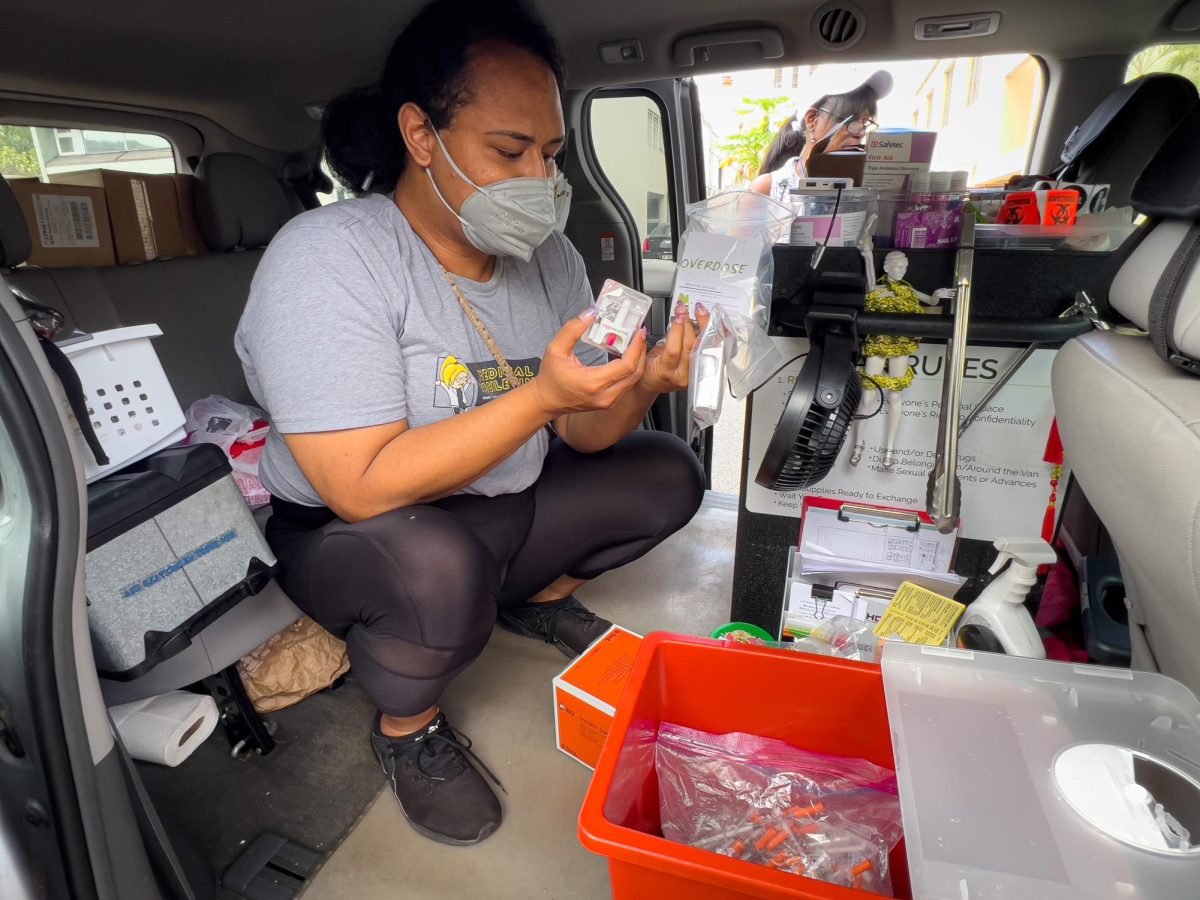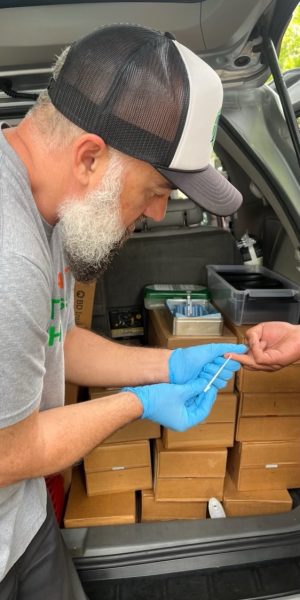
Courtesy of The Hawai'i Health & Harm Reduction Center
The HHHRC mobile unit offers health resources and support.
State lawmakers passed a bill earlier this month that would amend the distribution system of needles and syringes to intravenous drug users.
Passed on May 2, Senate Bill 1433 would change the current system from giving one clean syringe for every used one to giving people as many clean syringes as they need, and is intended to better facilitate the program’s goals of preventing bloodborne diseases and providing access to essential health and social services.
“For more than thirty years, Hawai’i’s state-funded syringe exchange program has improved public health by reducing the incidence of bloodborne infections related to injected drug use and has been effective in supporting people who inject drugs to improve their health,” the State of Hawaii Department of Health wrote in support of the bill.

“Syringe exchange programs prevent HIV, hepatitis C, and other bloodborne infections, are cost effective, reduce drug use and drug overdoses, protect the public and first responder by providing safe syringe disposal, and do not cause or increase illegal drug use or other crime,” it wrote.
Hawai’i Health & Harm Reduction Center provides access to these syringe exchange services through mobile units, appointments, and fixed sites on O’ahu, Kaua’i, Maui, and Hawai’i Island. These services are free, confidential, and designed to reduce the spread of HIV, hepatitis, and other bloodborne infections among people who inject drugs.
Participants have access to free resources like overdose prevention kits and safer sex supplies. They can also receive testing for HIV and hepatitis C, connection to follow-up care, help with enrolling in health insurance, and support accessing long-term medical and behavioral health services.
“For over three decades, Hawai’i’s statewide syringe services program has effectively kept HIV transmission rates low among persons who use drugs and their intimate partners,” the Harm Reduction Center wrote in support of the bill.
Thaddeus Pham submitted written testimony in support of the bill. A monthly volunteer at the Chinatown syringe exchange, Pham emphasized that people seek these services to improve their health and access support.
“Evidence shows that needs-based exchange is a vital strategy to reduce communicable diseases and also increase engagement with social services among people who use drugs. This allows providers to not only prevent diseases like HIV and hepatitis, but also build connections for addressing other urgent health issues, including overdoses, substance use, and houselessness,” Pham wrote.
While many like Pham support the bill for its potential to improve community health, others remain skeptical. Pastor Steve Santos from Calvary Chapel Westside in Lahaina, for example, raised concerns about the bill because access to needles could encourage addiction.
“I cannot understand anyone voting yes on a bill like this that puts the ‘care’ of IV Drug Users above the potential risks for our Keiki, and the public. Not to mention encouraging drug use in our streets,” Santos wrote. “This bill… would be a gift to drug dealers and addicts alike. Addicts need help and treatment to stop using. They do not need easier access to drugs and the paraphernalia used to take them.”
Like him, Jamie Detwiler wrote in opposition to the bill, testifying for Hawaiian Islands Republican Women.
“The Hawaiian Islands Republican Women stand in STRONG OPPOSITION to SB 1433 SD 1. We oppose any bill or law that would encourage illegal drug use and one that would perpetuate harmful addiction,” she wrote.